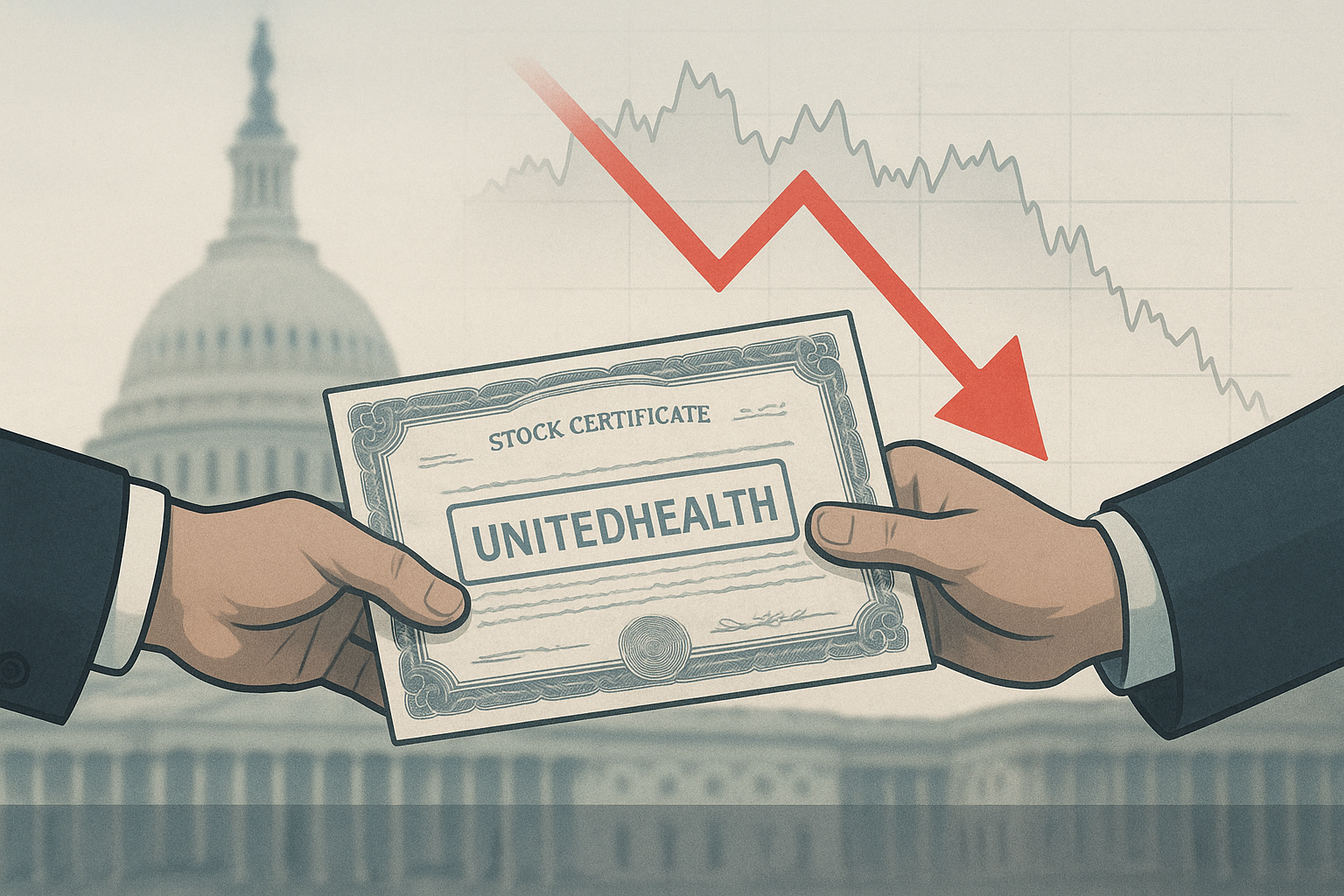I've seen some eyebrow-raising financial moves in my years covering Wall Street, but congressional stock trading patterns continue to be... let's just say... special.
The latest example? Lawmakers from both parties dumping UnitedHealth stock with timing so perfect it makes you wonder if their brokers moonlight as fortune tellers.
According to Politico's reporting, a bipartisan collection of our esteemed representatives managed to shed their UnitedHealth shares shortly before the healthcare behemoth took a serious tumble. The stock crashed following issues with its Change Healthcare unit — which, by the way, had already been dealing with the aftermath of a massive cyberattack earlier this year.
Just luck? Maybe. But it's part of a pattern so consistent it deserves a name. I call it the "Remarkable Coincidence Theory of Political Finance."
Look, I'm not suggesting anything improper. Heaven forbid! I'm simply pointing out that our legislators seem to possess an almost supernatural ability to sense market movements in industries they directly regulate. What talent!
"My financial advisor handles all my investments," they'll tell you, straight-faced. Or perhaps, "This was just routine portfolio rebalancing."
Funny how that routine rebalancing so often happens days before major price movements, isn't it?
The thing that gets me — after covering congressional financial activities since 2018 — is the stunning contrast between how regular investors perform versus our elected officials. Studies consistently show retail investors (that's regular folks like you and me) are generally terrible at market timing. We buy high, sell low, and occasionally get lucky enough to convince ourselves we're geniuses.
Yet congressional portfolios seem to dance through market landmines with the grace of ballerinas.
Remember the early pandemic days? When certain senators made adjustments to their portfolios after private briefings but before the market realized what was coming? Just another coincidence, I'm sure.
The STOCK Act was supposed to address this issue back in 2012, but it's about as effective as a chocolate teapot. And attempts to strengthen these laws? They die quicker than houseplants in my apartment.
(I've killed three ferns this year alone. Not relevant, but true.)
What's particularly frustrating is that there are reasonable solutions. Immediate trade disclosure. Blind trusts. Trading blackout periods during relevant legislative activity. None of these are radical ideas — they're basic conflict-of-interest protections.
But apparently asking politicians to follow the same rules as, say, corporate executives would be a bridge too far.
This matters beyond just UnitedHealth. Markets function on trust — trust that everyone's playing by the same rules, that information flows fairly, that the system isn't rigged. When those writing the rulebook appear to be playing a different game, that trust erodes.
So what's the takeaway here? I'm not saying you should stalk congressional disclosure forms for investment tips... but I'm not not saying it either.
Their crystal ball seems to be working remarkably well. Too well, some might say.
